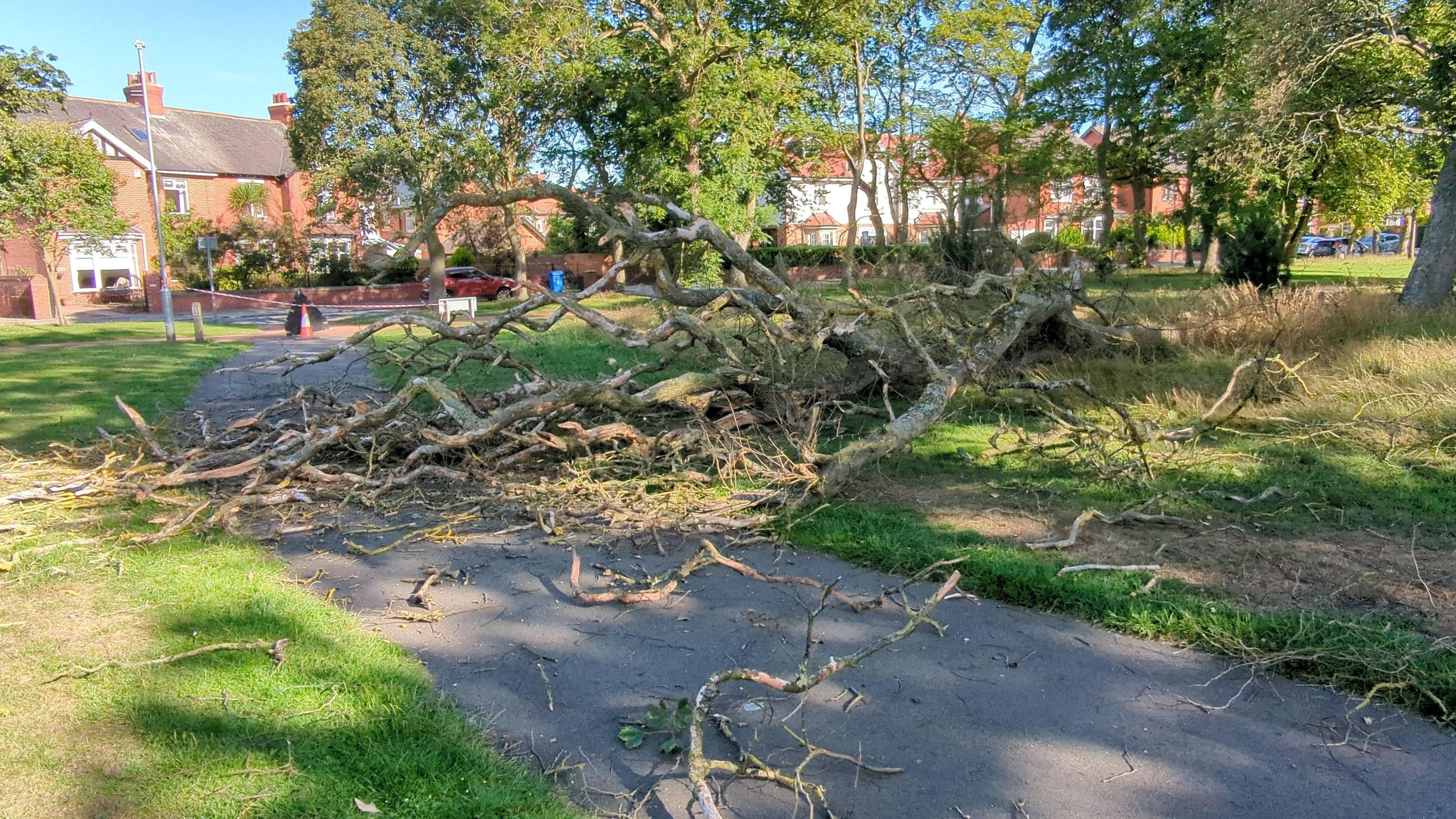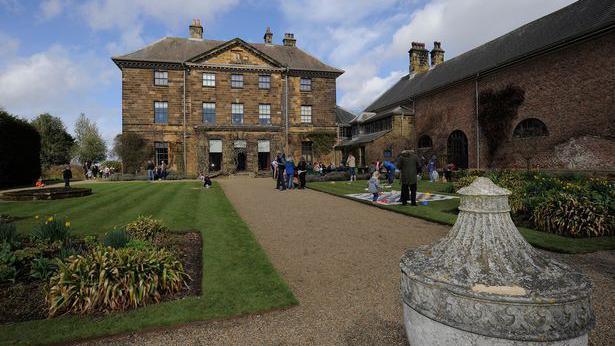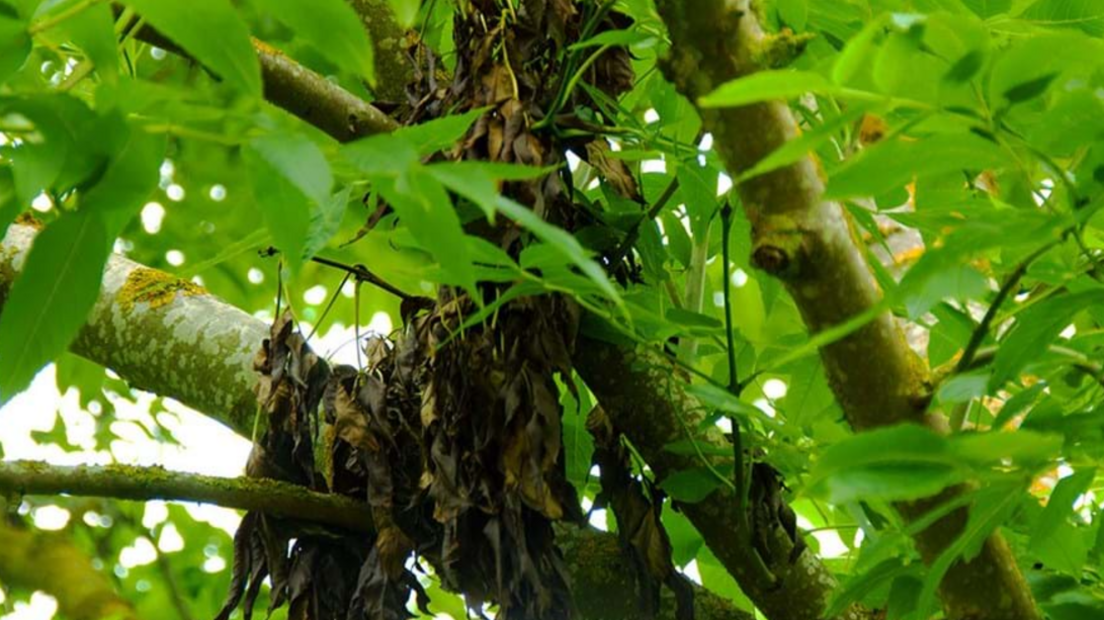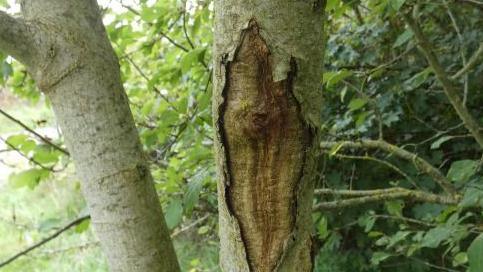Ash dieback infected trees in park to be cut down

Trees infected with Ash dieback become brittle and can cause them collapse
- Published
A dozen trees are set to be felled in a park after they were found to be riddled with ash dieback and Dutch elm disease.
Northumberland County Council plans to remove the trees from Ridley Park in Blyth, because of fears they could collapse and injure visitors.
The council also wants to plant more trees in the winter to replace those felled.
Councillor John Riddle, cabinet member for environment and rural, said the area around the infected trees would be cordoned off and reminded people to "keep clear" while the trees were being cut down.
"Ridley Park is one of the county's most popular award-winning parks and we need to keep it in tip-top condition," he said.
"While we never want to cut trees down, the safety of all visitors is of paramount importance and those that we are taking down are diseased and could pose a risk of collapse if they are not removed in a safe manner."
Danger of diseases
Trees infected with ash dieback can become brittle, which means they are liable to fall.
There are about 183,000 ash trees in Northumberland at risk from the fungal infection, according to the Local Democracy Reporting Service.
Dutch elm disease has also killed millions of UK trees after it was accidentally imported from Canada to the UK in the 1960s.
The Woodland Trust said the spread of the disease can be slowed by felling dead or dying trees.
This removes the habitat of the beetles which carry the fungus.
The diseased trees in Ridley Park were found during the Conservative-led council's regular inspection programme.
Most of the felling will take place early in the morning, when the park is less busy, the authority said.
Follow BBC North East on X, external, Facebook, external, Nextdoor and Instagram, external.
Get in touch
Do you have a story suggestion for BBC Tyne?
Related topics
Related stories
- Published19 June

- Published28 November 2024

- Published8 December 2024
